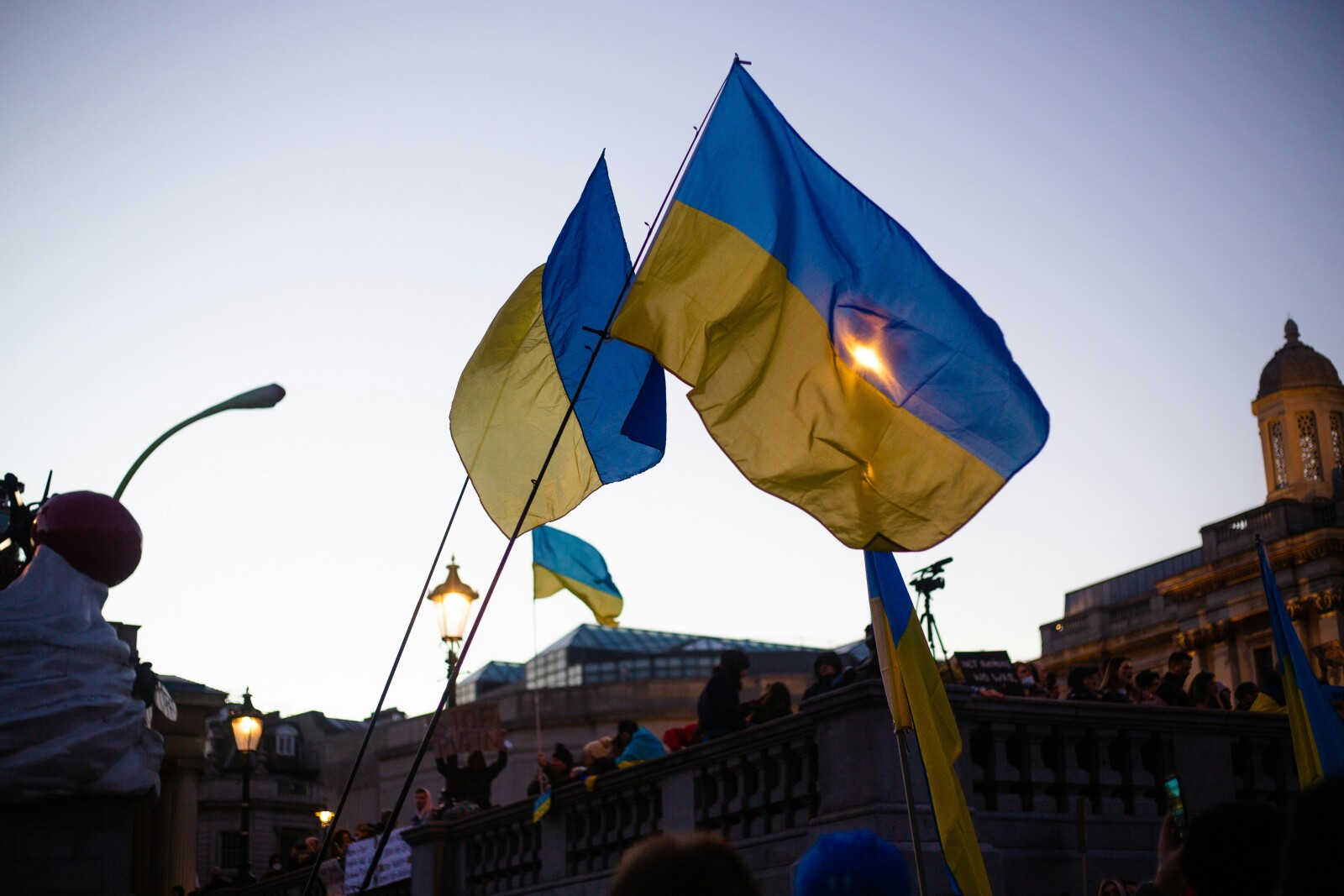
A year ago, I was among those still hoping that the Russian full-scale invasion of Ukraine might yet be averted. The morning of 24 February proved that to be a false hope, as Russian tanks crossed into Ukraine and Russian bombs railed down on locations near the country’s capital, Kyiv, and across central, eastern and southern Ukraine.
The past year has been one of immense suffering and trauma for the people of Ukraine, millions of whom were uprooted from their homes as families were split up, martial law was imposed, and Ukraine became the site of the largest-scale war in Europe since World War II. It has also been a year when the world has been constantly amazed by the strength and tenacity of the Ukrainian people, as they have stood up to Russian aggression in the battle fields of war, in wider society, and in the media as they have mounted one of the biggest volunteer movements in recent decades.
On the first day of the war, EED adapted its grant making procedures to provide immediate assistance to partners. Our ‘Ukraine Emergency Support Mechanism’, launched on 25 February, provided partners with emergency top-ups to their grants to cover urgent expenses, such as evacuation to safer locations, coordination of urgent humanitarian aid, replacement of equipment lost or damaged due to the war, reopening of offices in new locations, and other urgent civic activism activities. Grantees were also offered an immediate extension to their on-going grants.
During the first two months of the war, EED allocated 77 grants under this mechanism, providing a vital lifeline for partners during the early chaos of war at a time when many other organisations were forced to temporarily suspend grant programmes. Today, EED grantees are working in 23 of Ukraine’s 25 regions, and we currently have as many as 101 grants open within Ukraine.
Media outlets represent a significant percentage of our portfolio, with EED providing grants throughout the past year to many high profile independent media including Kyiv Independent, Slidstvo.info and Liga.net, as well as to media operating on the frontlines, such as Nakipelo, which continued to report from Kharkiv when the city was under Russian shelling, as well as to hyper-local media that report from close to the line of combat.
For the past year, Ukrainian civil society has worked closely with the state to assist their fellow citizens and to resist Russian aggression. Despite the challenges of war, civil society has also remained highly vigilant of their important role in helping to preserve Ukraine’s pro-democratic reforms, and of the potential dangers of a government left without checks and balances. With Ukraine now granted EU candidate status, this work in ensuring accountability, transparency, and fighting corruption is more important than ever.
Among the most emotional and memorable moments this year were when former EED grantee, Oleksandra Matviichuk, human rights lawyer and leader of the Centre for Civil Liberties, accepted the Nobel Peace Prize for her work, and when she received the Sakharov Prize for Freedom of Thought from the European Parliament, in recognition of the brave people of Ukraine.
In July 2022, with EED support, several leading civil society partners attended the Ukraine Recovery Conference (URC2022) in Lugano, where they presented the Civil Society Manifesto – Lugano Declaration, that sets out the common principles of Ukraine’s reconstruction and notes the red lines and existential risks currently faced.
By the end of 2022, over 300 civil society organisations had signed up to the Manifesto, and in January 2023 alone it was signed by 215 new organisations. According to Oleksandr Solontay, one of its initial authors, many now see the Manifesto as a vital part of Ukraine’s victory, rather than simply a road map to be implemented after the war.
I would like to reiterate EED’s full support to the restoration of Ukraine’s sovereignty and territorial integrity, and its commitment to providing assistance to Ukrainian civil society and independent media both now at a time of war and afterwards in the reconstruction process.
Slava Ukraini!